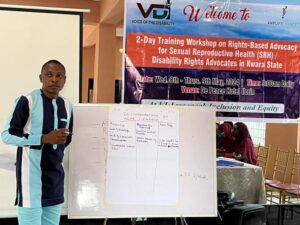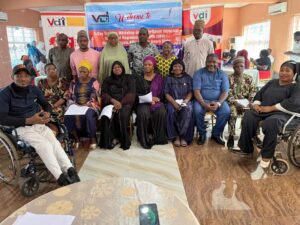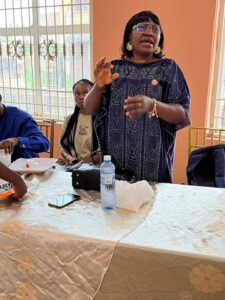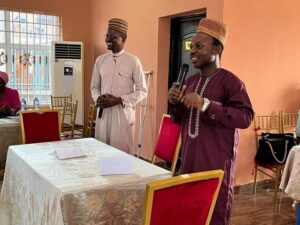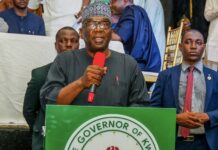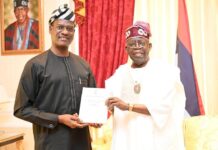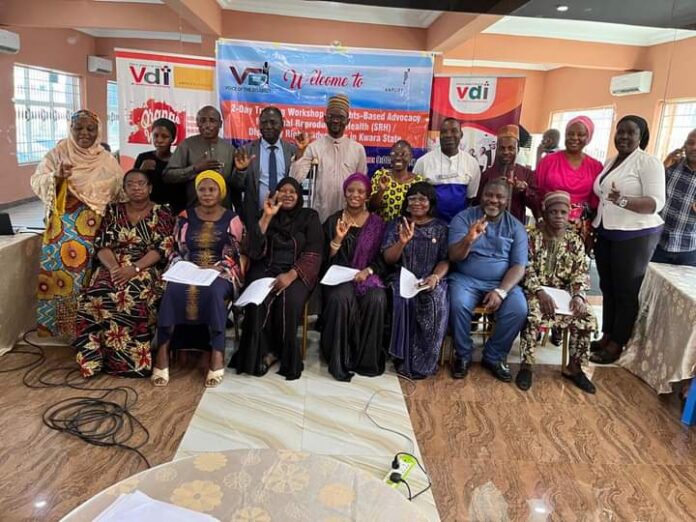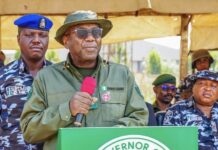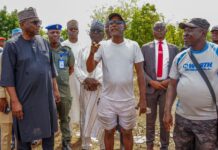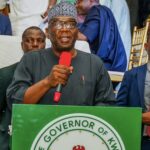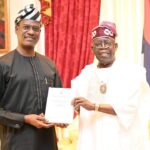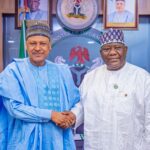In a bid to amplify the voices of persons with disabilities (PWDs) and enforce their rights, a 2-day training workshop on rights-based advocacy for sexual reproductive health (SRH) and disability rights advocates was recently held at the Peace Hotel, Ilorin, Kwara State. The capacity building workshop is part of the activities mapped out in commemoration of the 2-Year Sexual and Reproductive Health Rights Project being funded by AMPLIFYCHANGE, a UK based organization.
The workshop, organized by the Voice of Disability Initiative (VDI) in collaboration with the Joint National Association of Persons with Disabilities (JONAPWD) Kwara State Chapter, gathered 30 SRH/Disability Rights Advocates alongside high-profile individuals in the state including Professor Wahab Egbewole, the Vice Chancellor of the University of Ilorin, who was represented by Prof. Azubuike, Chief Mrs Afolashade Opeyemi Olwakemi, Honourable Commissioner for Ministry of Social Development, who was represented by the Permanent Secretary of the Ministry, Mr Ayanwale Peter Kayode, the Hon. Commissioner for Education and Human Capital Development, Hajia Sa’adatu Modibbo-Kawu, Special Assistant to the Kwara State Governor on Education, Dr. Adetola Ariyike Salau; representative of the Hon. Commissioner for Justice, Barr. Balogun F. F; O/C Gender (Nigerian Police), Lerawon Alice O. amongst others.
During the workshop, participants lauded the Kwara State Government’s strides in enacting Disability Rights Law in 2017. However, they also highlighted critical gaps, including the absence of a Disability Commission and insufficient provisions such as Disability Support Desks and Sign Language Interpreters in healthcare facilities. These deficiencies hinder persons with disabilities, especially the deaf, blind, and physically challenged, from accessing essential healthcare services.
Barr. Catherine Edeh, the Executive Director of VDI, emphasized the urgency of establishing a Disability Commission directly under the Governor to oversee disability affairs and implementing support measures in healthcare facilities. These steps align with international principles of inclusivity and leave no one behind.
The workshop’s recommendations echo broader concerns in Kwara State, where advocates are pushing for more comprehensive disability laws and support systems. Their efforts aim to ensure equal rights and opportunities for all, regardless of disability status.
By addressing these issues, Kwara State can continue its legacy as a pioneer in disability rights and set a standard for inclusive governance nationwide.